Spot Assist is a mobile application to visualize different aspects of canopy flying: canopy range and pattern. This is how Spot Assist looks:
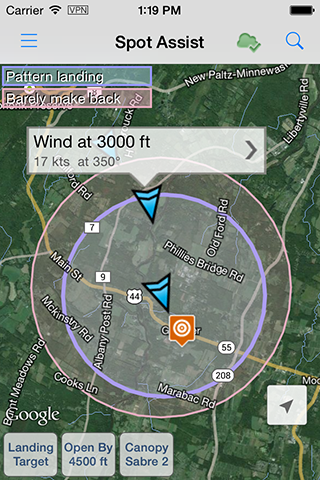
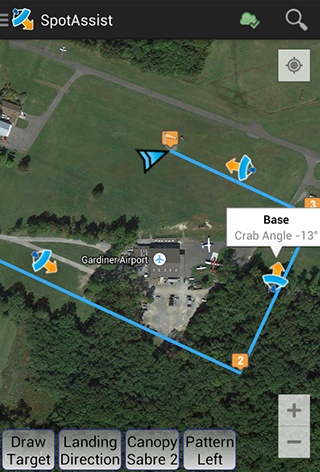
Every canopy pilot takes into account the following data
- Canopy Glide Ratio
- Current wind direction and speed
For instance, Student canopy doesn’t fly forward as much as PD Sabre2. This is because of the difference in glide ratio. And a wind also takes its toll, by pushing the canopy, and changing the distance covered over the ground. Below is the explanation of the math, used for calculations.
Canopy glide ratio:
Glide ratio is a canopy characteristic, based on how many feet a canopy moves forward for every foot of descend: measured as 2:1, 3:1 etc. It means that the canopy with 2:1 glide ratio will fly forward 2000 feet, while descending 1000 feet. But that is on a no wind day. On a windy day it is different.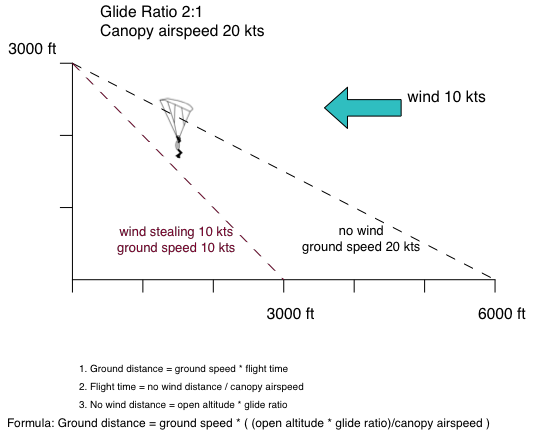
Winds at altitudes:
Winds at different altitudes: 3000 ft, 6000 ft etc. Wind will either slow down, or speed up the canopy, relative to the ground. If you fly against the wind – wind will slow it down. If you fly with the wind – it will help the canopy cover more ground distance.
Direction of flight in the relative wind
Direction of flight in relative wind, called heading, and relative to the ground, called ground track. On a windy day – heading and ground track might be significantly different, because of the wind correction angle.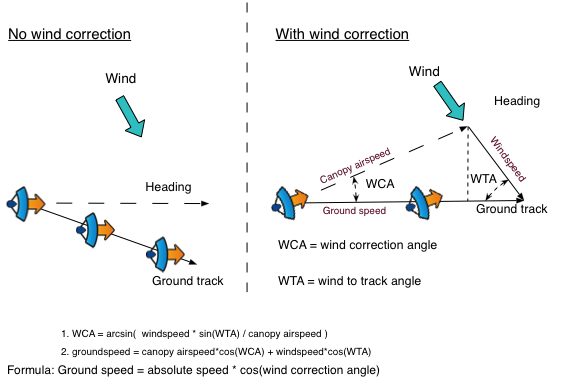
Formula
So in the end, there is a formula to calculate the distance that canopy can fly in current conditions in any direction. This formula is used to calculate the range and the pattern.
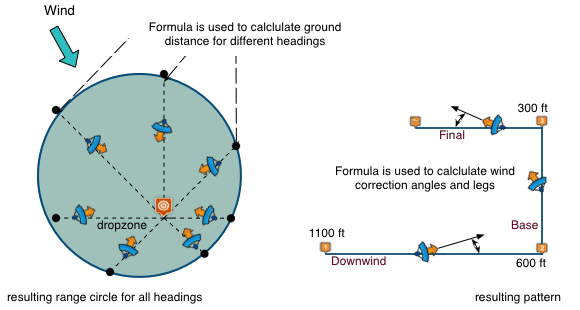
Spot Assist downloads the wind data for a selected drop zone, and, using this formula, calculates all required distances, to put it on the map. Easy. And don’t forget, that you can change every aspect of the pattern. Just change landing direction, play with turning altitudes and see how it will affect the pattern.
If you want to know how Flying Formula is used by Spot Assist see What Is Spot Assist
Happy jumping and Blue Skies



2 Thoughts on “Flying formula”
Comments are closed.